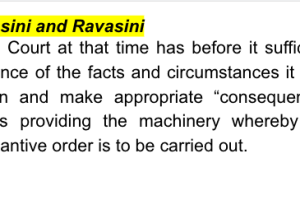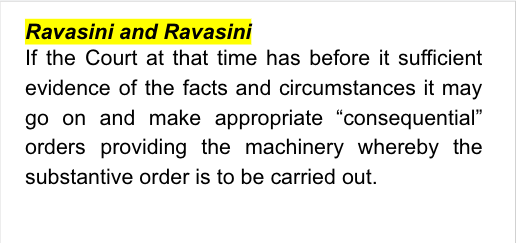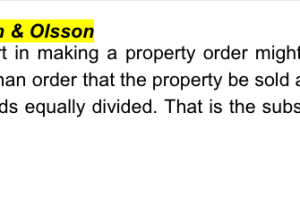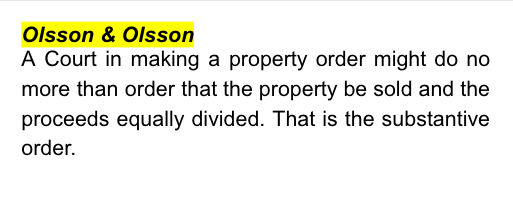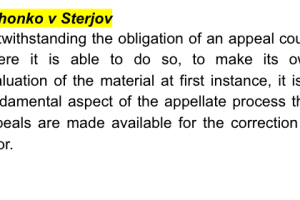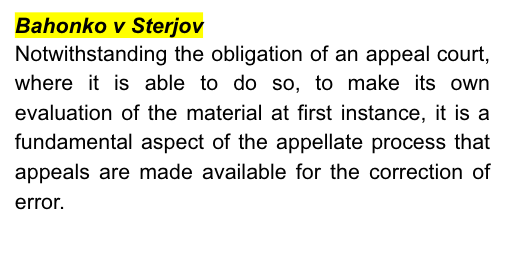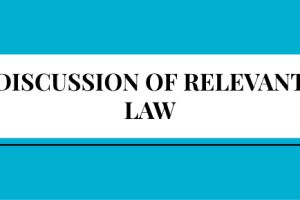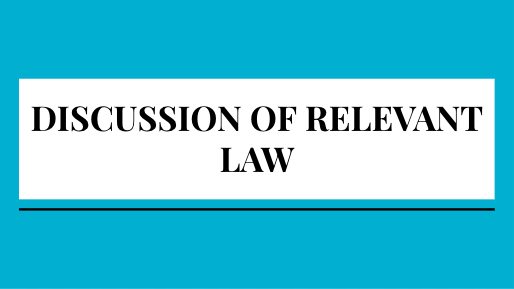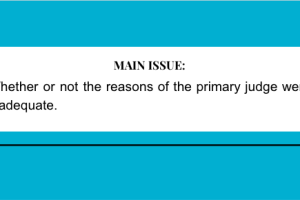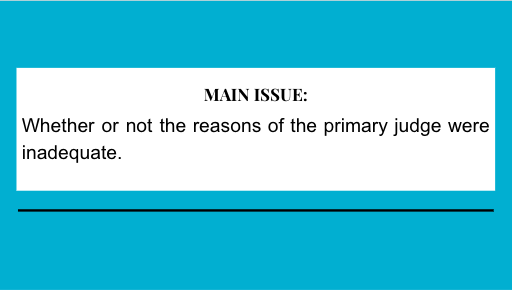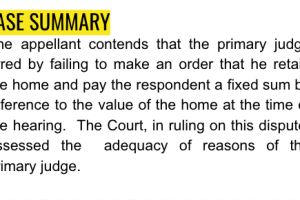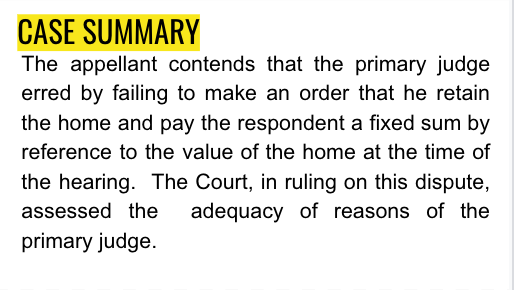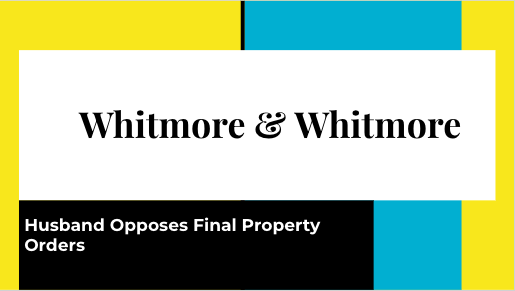- · 4717 friends
Husband Opposes Final Property Orders

Whitmore & Whitmore (No 2) [2022] FedCFamC1A 168 (11 October 2022)

The husband contends that the primary judge erred by failing to make an order that he retain the home and pay the wife a fixed sum by reference to the value of the home at the time of the hearing. The Court, in ruling on this dispute, assessed the adequacy of reasons of the primary judge.

Facts
Mr Whitmore (“the husband”) appeals against property orders made by a judge of the Federal Circuit and Family Court of Australia (Division 2) made on 2 March 2022 in proceedings between him and Ms Whitmore (“the wife”). Earlier on 23 November 2021, the primary judge made a suite of final parenting and property orders in the proceedings.
By means of an Application in a Proceeding filed on 31 January 2022, the wife sought enforcement of the property orders because the husband had failed to cooperate with the wife in the sale of the former matrimonial home of which he had remained the occupant. On 2 March 2022, the primary judge set aside the earlier orders for sale and replaced them with orders that the husband vacate the property, that the wife have sole occupation of it and restraining the husband from re-entering the property.
The husband contends that the primary judge erred by failing to make an order that he retain the home and pay the wife a fixed sum determined by reference to the value of the home at the time of the hearing. The husband did not appeal against the orders made on 23 November 2021 which provided for the home to be sold and the proceeds divided. Being dissatisfied with the orders on 2 March 2022, however, the husband filed an Application in an Appeal on 29 March 2022 seeking leave to appeal out of time from the original orders of 23 November 2021. The appeal judicial registrar dismissed that application on 12 April 2022.
The husband then filed an Application in an Appeal on 11 May 2022 seeking review of that decision. The application for review was dismissed. However, his Honour granted the husband’s oral application for leave to appeal against the orders provided that "(a) the appeal must be confined to the substance of Grounds 4, 5 and 6 as contained in the draft Notice of Appeal annexed to the applicant’s affidavit filed on 29 March 2022; (b) the Notice of Appeal must be filed and served within 14 days hereof; and (c) the sum of $15,000 is preserved as security for the wife’s costs of and incidental to the appeal which, in the event of dismissal of the appeal, shall be paid to the wife from the applicant’s share of the net proceeds of sale realised on the sale of the real property pursuant to orders made by the primary judge on 2 March 2022." The husband can only appeal against the orders of 2 March 2022.

Issue
Whether or not the reasons of the primary judge were inadequate.

Applicable law
Family Law Act 1975 (Cth) ss 75 - relied upon in holding that a 10 per cent adjustment in the wife's favour, as contended for by her should be made.
Bahonko v Sterjov (2008) 166 FCR 415; [2008] FCAFC 30 - provides that notwithstanding the obligation of an appeal court, where it is able to do so, to make its own evaluation of the material at first instance, it is a fundamental aspect of the appellate process that appeals are made available for the correction of error.


 d
d
Analysis
The primary judge considered that the wife’s figure was somewhat conservative at [242], but accepted it was appropriate.Having regard to the considerations in s 75(2) of the Family Law Act 1975 (Cth), his Honour found that a 10 per cent adjustment in her favour, as contended for by her, should be made. Thus, his Honour found that an equal division of the property was just and equitable. His Honour varied the orders for the mode of the sale of the former matrimonial home, but not to the division of the proceeds. He declined to make the orders sought by the husband.
Ground 1 challenges the reasons at [262] of the 23 November 2021 reasons and Order 1 made on that day. Ground 2 challenges what the husband said was the inadequate weight given to his special contributions during the relationship. That evidently is a challenge to the contributions found made in the 23 November 2021 reasons. Ground 3 challenges the reasoning at [247] of the 23 November 2021 reasons and the primary judge’s finding that the wife received $12 per week in child support from the husband. Ground 4 again refers to the special contributions and orders made for the superannuation splitting order which was made on 23 November 2021 and remained unchanged by the 2 March 2022 orders.
None of the abovementioned grounds is an appeal against the 2 March 2022 reasons. Ground 5 refers to the findings of assault and domestic violence made in the course of the parenting proceedings. Findings of violence played no part in the property division and accordingly Ground 5 can only be seen as an appeal against the parenting orders which were made on 23 November 2021.
Conclusion
The appeal is dismissed. The husband is to pay the costs of the wife fixed in the sum of $12,500.


